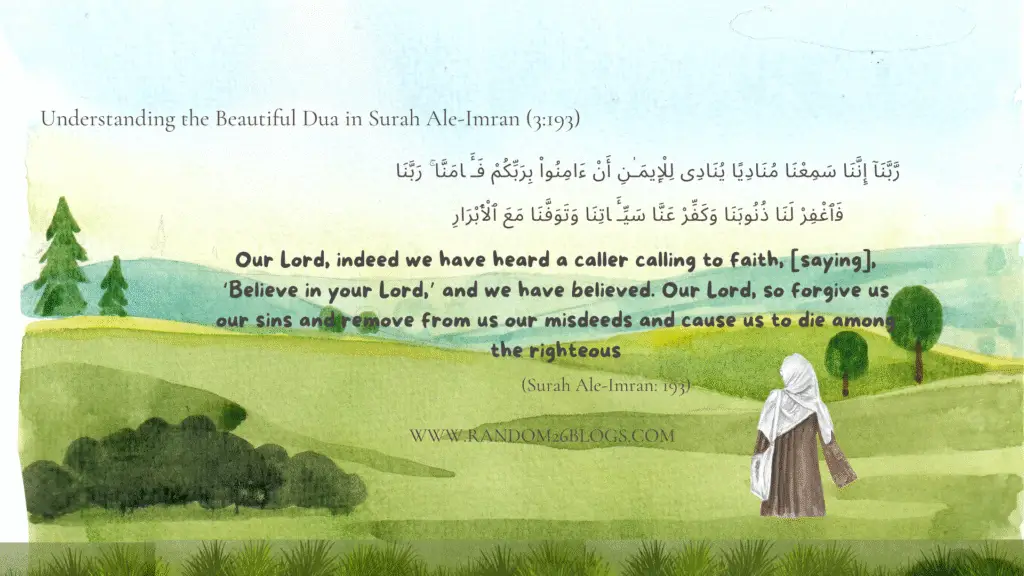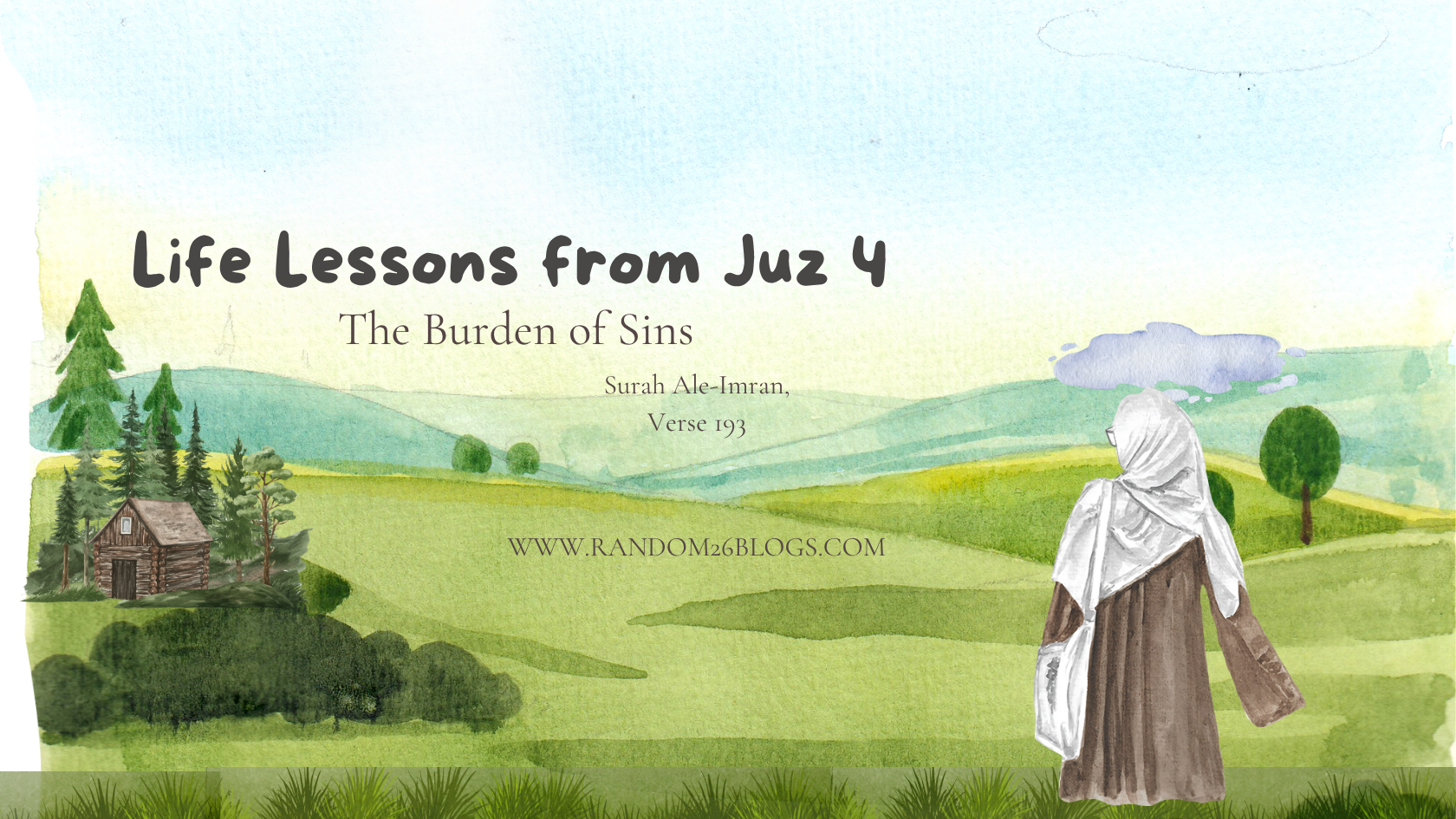Understanding the Beautiful Dua in Surah Ale-Imran (3:193)
رَّبَّنَآ إِنَّنَا سَمِعْنَا مُنَادِيًا يُنَادِى لِلْإِيمَـٰنِ أَنْ ءَامِنُوا۟ بِرَبِّكُمْ فَـَٔامَنَّا ۚ رَبَّنَا فَٱغْفِرْ لَنَا ذُنُوبَنَا وَكَفِّرْ عَنَّا سَيِّـَٔاتِنَا وَتَوَفَّنَا مَعَ ٱلْأَبْرَارِ
“Our Lord, indeed we have heard a caller calling to faith, [saying], ‘Believe in your Lord,’ and we have believed. Our Lord, so forgive us our sins and remove from us our misdeeds and cause us to die among the righteous.” (Surah Ale-Imran: 193)
This powerful verse contains a profound dua (supplication) that every believer should incorporate into their daily routine. To truly connect with this prayer, we must understand its deeper meanings and lessons.

Key Lessons from the Ayah
1. Responding to the Call of Eman (Faith)
- The word مُنَادِيًا (Munadi) refers to a caller from a distance. Here, it signifies Prophet Muhammad (ﷺ) and, by extension, the scholars and righteous successors who conveyed his message.
- The call is to Eman (faith)—not just belief in Allah, but also in His Books, Prophets, and all pillars of faith.
- Reflection: We must acknowledge the blessing of Eman and express gratitude for being guided to Islam.
2. Seeking Forgiveness for Major and Minor Sins
- ذُنُوبَنَا (Dhunubana) refers to major sins (e.g., shirk, zina, murder).
- سَيِّـَٔاتِنَا (Sayyi’atina) refers to minor sins (e.g., rudeness, arrogance, mockery).
- Forgiveness vs. Expiation:
- “فَٱغْفِرْ لَنَا” (Forgive us) – Conceal and pardon our major sins.
- “وَكَفِّرْ عَنَّا” (Remove from us) – Erase our minor sins so they don’t tarnish our record.
- Analogy: Like a beautiful painting ruined by small stains, minor sins accumulate and degrade our spiritual purity.

3. The Desire to Die Among the Righteous (Abrar)
- ٱلْأَبْرَارِ (Al-Abrar) refers to those who perform abundant good deeds (Birr) without showing off.
- This part of the dua expresses a longing for a righteous death and companionship with the pious in the Hereafter.
Life Lessons & Practical Applications
1. Acknowledge the Blessing of Eman
- Recognize that faith is a gift from Allah.
- Express gratitude by saying: “Allahumma inni a’udhu bika an ushrika bika shay’an wa ana a’lamu, wa astaghfiruka lima la a’lamu.” (“O Allah, I seek refuge in You from knowingly associating partners with You, and I seek Your forgiveness for what I do unknowingly.”)
2. Regularly Seek Forgiveness
- Major sins require sincere repentance (Tawbah)—regret, stopping the sin, and resolving never to return.
- Minor sins should not be taken lightly—they can accumulate and lead to destruction.
3. Make Dua with Allah’s Names
- This ayah repeatedly uses “Rabbana” (Our Lord)—a reminder to call upon Allah with His beautiful names.
- Example: “Ya Ghaffar, forgive my sins. Ya Tawwab, accept my repentance.”
4. Strive to Be Among the Righteous
- Follow the path of the Abrar—those who do good sincerely and without showing off.
- Perform hidden acts of charity, night prayers (Tahajjud), and daily dhikr.
Final Reflection
This dua from Juz 4, Surah Ale-Imran (3:193), is a comprehensive prayer for:
✅ Faith (Eman)
✅ Forgiveness of sins
✅ Protection from disgrace in the Hereafter
✅ A righteous death among the pious
Action Step: Memorize this dua and recite it daily, especially after prayers, with full understanding and humility.
May Allah forgive our sins, erase our misdeeds, and grant us a place among the righteous. Ameen.
- Surah Ale-Imran 193 meaning
- Dua for forgiveness of sins
- Life lessons from Juz 4
- How to erase minor sins in Islam
- Best dua for righteous death
- Munadi meaning in Quran
- Abrar in Islam
By understanding and implementing this dua, we can purify our hearts and strengthen our connection with Allah. Share this with others to spread the khair!
READ MORE

